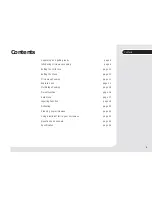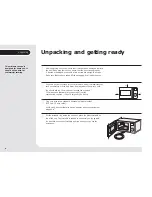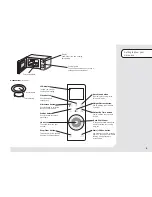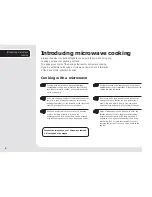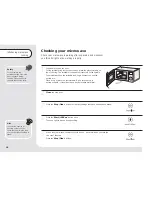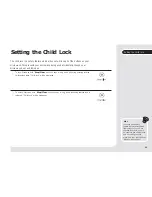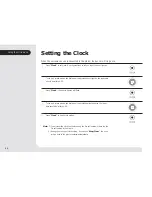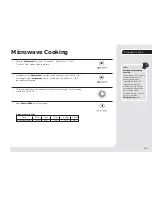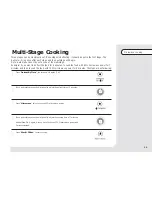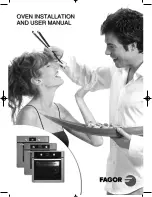
Introducing microwave cooking
Always remember the basic safeguards you would follow when using any
cooking equipment or handling hot food.
This page gives some of the basic guidelines for microwave cooking.
If you are unfamiliar with using a microwave, there is more information
at the back of this instruction booklet.
Cooking with a microwave
Cooking with a microwave is much faster than
conventional cooking and, whilst you should make
sure that food is fully cooked, you should be careful
not to overcook it.
If you are cooking a number of individual foods at the
same time, such as baked potatoes or small cakes,
arrange them evenly on the turntable so that they cook
evenly. Never stack food in your microwave.
Meat and poultry which is cooked for 15 minutes
or more will brown lightly in it is own fat.
Anything cooked for a shorter time can be brushed
with a browning sauce to give an appetising colour.
Microwave energy can heat unevenly so stirring to
distribute heat is very important. Always stir from the
outside towards the centre.
Turn larger foods such as meat roasts and poultry
during cooking so that the top and bottom cook
evenly. It is also a good idea to turn chops and
chicken pieces, especially if they contain the bone.
Strips of aluminium foil can be used to cover the
thinner pieces of food to stop them overcooking
before the thicker parts of the food have had a
chance to cook. Use the foil sparingly and wrap
around the food or container carefully to stop it
touching the inside of the oven which could cause
sparks.
Introducing microwave
cooking
You should always have your microwave checked
if it is dropped or damaged.
6



